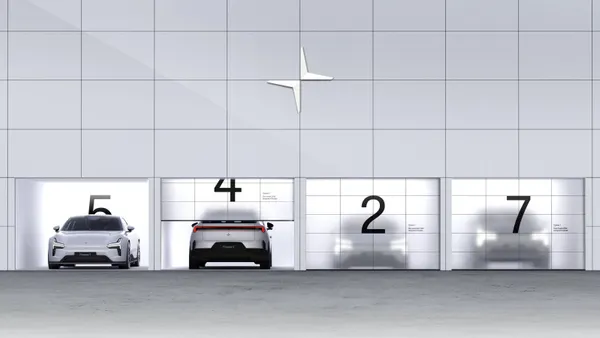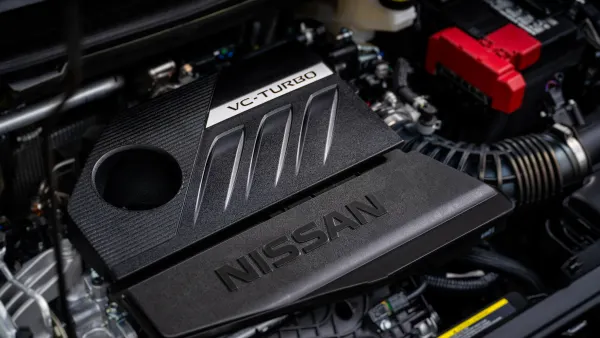Editor's note: This story is part of the WardsAuto digital archive, which may include content that was first published in print, or in different web layouts.
Frank Macher allowed the unthinkable to happen.
As president and CEO of bankrupt supplier Collins & Aikman Corp., he was in the loop in mid-October when his company stopped shipment of interior parts to Ford Motor Co.'s Hermosillo, Mexico, plant in a dispute over component prices.
The Hermosillo facility, which produces Ford Fusion, Lincoln MKZ and Mercury Milan sedans, shut down temporarily as a result.
Pricing disputes are common as domestic auto makers and suppliers struggle for survival in a tumultuous North American market, but stopping shipment of components remains a rare occurrence that comes only as a last resort.
As a 30-year veteran of Ford who led the auto maker's components business before it was spun off as Visteon Corp. in 2000, Macher understands as well as anyone the gravity of Collins & Aikman's actions.
So much so that less than a week after the shutdown, Macher took to the stage at an industry conference in Dearborn, MI, to call for some sanity in the deteriorating relationship between suppliers and OEMs.
He kept his promise not to discuss the details of the dispute with Ford, but he closed his speech with a story about a plant he visited in Czech Republic while at Ford in the 1990s. Lights would turn on and employees would do their jobs only when Macher and his entourage walked by. He asked the managing director why.
“He said, ‘Well, they pretend to pay us, and we pretend to work,’” Macher recalls. “I don't think that's the appropriate relationship for us and our customer. I don't like it when they pretend to pay me, and I don't like to shut anybody down.”
Still, Macher is hardly conciliatory in his speech, in which he proposes a “Bill of Rights” to govern OEM-supplier relations and uses terms such as “immoral,” “shenanigans,” “sin” and “horrible” in describing this dynamic.
He refers to supplier-funded tooling as a key cause for supplier failures. Often, suppliers are required to pay for tooling to produce vehicle components, with the understanding they will be reimbursed by their OEM customer when the tools are approved for production.
“For a number of reasons, there are cases where it's almost impossible to get tools (approved),” Macher tells the crowd. “And as a result, production is started with unapproved tooling, and it may run one or two years without the supplier receiving reimbursement for tooling.”
In addition, suppliers now are shouldering a disproportionate share of engineering and product-development cost, with little hope for compensation. These responsibilities are spelled out today in “global terms and conditions” as written by OEMs, Macher says.
“We're not in an evolutionary environment any longer where the terms and conditions were modified and adjusted over a period of time,” Macher says.
“Where we are today is in a radical sea of change, a tsunami of unprecedented proportions: untold supplier bankruptcies, closures, sell-offs and, with a few exceptions, an ever weakening supply base,” he says. “It becomes more and more obvious every day that major disruptions are on the horizon because of insolvency and liquidations.”
Another source of supplier trouble is vehicle programs that fall far short of the OEM's projected volumes. Suppliers with a heavy reliance on Detroit auto makers also have excess capacity as those OEMs lose market share.
As Detroit loses share, Japanese auto makers are gaining it. Yet, U.S. suppliers have struggled to win business with the Japanese, particularly in the area of plastics.
Macher says Japanese auto makers typically produce internally such Collins & Aikman components as instrument panels and bumpers, or outsource them to fellow Japanese keiretsu suppliers.
“So whenever we see a Japanese car sold instead of a U.S. car, in many cases you're seeing a loss of business for the entire plastics industry,” Macher says.
Other pressure points are volatile raw material prices (particularly for resin and steel) and unrelenting pressure from OEMs to slash component prices. Macher says OEMs are strong-arming plastics suppliers that make money on other components.
“As a result, the entire plastics industry is in disarray,” Macher says. Lear Corp., for instance, has said it is exiting the plastics industry and instead is focusing on its more profitable products — namely seats and electronics.
“We will all be smaller in number,” Macher says of automotive plastics suppliers, which he expects to drop in number from 14 to five. “But I think we will be healthier.”
After his speech, Macher tells journalists that C&A management, in crafting a reorganization plan to exit bankruptcy, now is studying alternatives that include “selling some or all of our operations independently. Parts of our business are extremely attractive.”
As part of recent restructuring, C&A has downsized significantly, from more than 80 facilities at the time of the bankruptcy filing in May 2005 to 45 today. Twelve of the facilities are in North America, including five in the fabrics sector.
To fix the supplier/OEM business model, Macher proposes a Bill of Rights stating clearly what the parties should expect from each other.
OEMs deserve top-quality products built to specification every time; on-time delivery; first-rate technology and service; competitive component prices; and collaboration to achieve affordable cost targets.
From OEMs, suppliers deserve realistic product volume projections. “If you miss on a volume, you pay us those fixed costs that were attributed to that volume miss,” Macher says.
Suppliers also are entitled to a “pay-as- you-go commitment” for product development; timely tooling reimbursement; protection of proprietary technology; an end to OEM market testing of a supplier's technology; a framework for resolving commercial disputes; and an indexing mechanism for the OEM and supplier to shoulder high costs for raw materials.
In addition, Macher insists auto makers refuse to award contracts they know are unprofitable. He says auto makers have “very capable financial analysis departments” to determine if a supplier makes money on a particular contract.
“And they can also determine who is buying the business (taking a contract at a loss),” he says. “To allow that to happen, to allow people to bid on business three years down the road that they know is under water to start, is immoral.”
At issue is the ability of the supply chain to post profits in the U.S. auto industry.
“It is not a sin to make money. It's good,” Macher says. “And it assures the shareholders will stay with you, that your employees are taken care of, that you have a viable business.
“Healthy suppliers make for healthy customers because they can provide better technology and better feature content for that customer.”
Macher says he would like to present his proposed Bill of Rights at a meeting of the Original Equipment Suppliers Assn., and that he hopes to draw support from other suppliers.
“It really is a question as to whether or not this supply industry is truly willing to band together on certain principles and conditions that they would like to achieve,” Macher says.
Asked by moderator David Cole if now is the time for suppliers to push back against OEM price pressures, Macher says: “Each supplier has to make their own decision as to whether or not they can weather the storm. Whether or not to take more aggressive action, that's their decision.”
He declines to speculate as to whether the supplier is prepared to stop shipment again.
“Let's see how everything plays out,” he says. “Now, I think we're on terms that should assure continued deliveries.”









